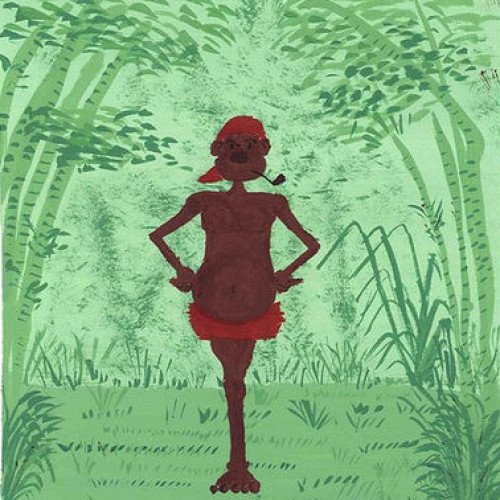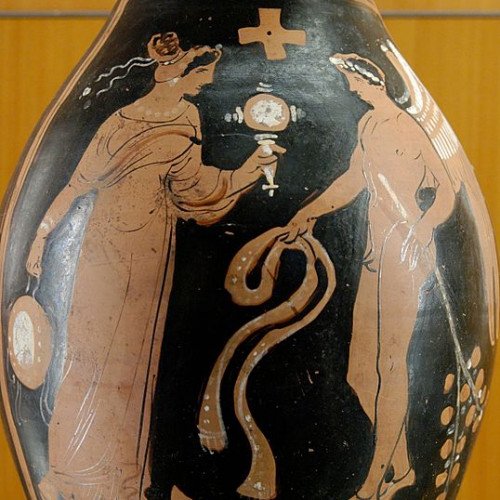Saci (Brazilian folklore) VS Daemon (classical mythology)

Saci (Brazilian folklore)
Saci (pronounced [saˈsi] or [sɐˈsi]) is a character in Brazilian folklore. He is a one-legged black or mulatto youngster, who smokes a pipe and wears a magical red cap that enables him to disappear and reappear wherever he wishes (usually in the middle of a dust devil). Considered an annoying prankster in most parts of Brazil, and a potentially dangerous and malicious creature in others, he nevertheless grants wishes to anyone who manages to trap him or steal his magic cap. However, his cap is often depicted as having a bad smell. Most people who claimed to have stolen this cap say they can never wash the smell away. The legend says that a person can trap a Saci inside a bottle when he is in the form of a dust devil. There are several variants of the myth, including: Saci-pererê (pronounced [sɐˈsi pe̞ɾeˈɾe]), black as coal; Saci-trique (pronounced [sɐˈsi ˈtɾikɪ]), mulatto and more benign; Saci-saçurá (pronounced [sɐˈsi sɐsuˈɾa]), with red eyes. Saci-pererê is also the name of a Brazilian cocktail consisting of 60 millilitres (2.1 imp fl oz; 2.0 US fl oz) of cachaça and 45 millilitres (1.6 imp fl oz; 1.5 US fl oz) of honey, which is a home remedy said to be useful in treating the common cold.
Statistics for this Xoptio

Daemon (classical mythology)
Daemon is the Latin word for the Ancient Greek daimon (δαίμων: "god", "godlike", "power", "fate"), which originally referred to a lesser deity or guiding spirit such as the daemons of ancient Greek religion and mythology and of later Hellenistic religion and philosophy. The word is derived from Proto-Indo-European *daimon "provider, divider (of fortunes or destinies)," from the root *da- "to divide". Daimons were possibly seen as the souls of men of the golden age acting as tutelary deities, according to entry δαίμων at Liddell & Scott.